Sale!
Agricultural Farming, Premium Products, Services, Sustainable Integrated Farming Option
Eggshell Powder
Original price was: ₹300.0.₹175.0Current price is: ₹175.0.
| Business Type | Manufacturer, Supplier |
| Country of Origin | India |
| Purity | 99% |
| Packaging Type | Plastic Boxes |
5% GST & Transport separate
Payment Terms:
50% advance booking and the rest 50% once loaded with transport (post appropriate evidence given) or COD (Cash On Delivery)
Other Details:
We can supply 3 varieties of them:
1) Pharmaceutical raw materials / Cosmetics purpose / Food grade: INR 115 /-
2) Agricultural Plant & Nurseries: INR 40 /-
3) Paints & Cement Industries: INR 20 /-
You must be logged in to post a review.
Q & A
Ask a question
There are no questions yet
1. Sourcing and Waste Utilization
- Sustainability: Eggshells are a byproduct of the egg industry, which is otherwise considered waste. By repurposing eggshells into powder, the product contributes to waste reduction, making the process more sustainable. Instead of discarding the shells, they are converted into a valuable resource.
- Scientific Explanation: Eggshells are rich in calcium carbonate (CaCO₃), and converting them into powder allows for the utilization of this natural mineral in various applications, including dietary supplements, agriculture, and even as a natural abrasive. This reduces the demand for mining calcium carbonate from the earth, conserving natural resources.
2. Low Energy Production Process
- Sustainability: The process of turning eggshells into powder generally involves cleaning, drying, and grinding the shells. These processes require relatively low energy compared to the extraction and processing of other calcium sources, like limestone mining and processing.
- Scientific Explanation: The carbon footprint of a product is often correlated with the energy intensity of its production. Since eggshell powder production uses minimal energy and typically employs low-tech methods, the overall carbon emissions associated with its manufacturing are low.
3. Local Sourcing and Minimal Transportation
- Sustainability: Eggshells are widely available globally due to the ubiquity of the egg industry. This means that production of eggshell powder can be localized, reducing the need for long-distance transportation, which in turn reduces the carbon footprint.
- Scientific Explanation: Transportation is a significant contributor to the carbon footprint of many products. By producing eggshell powder locally, the associated emissions from transportation (such as CO2 emissions from trucks or ships) are minimized, contributing to a lower overall carbon footprint.
4. Biodegradability and Non-Toxicity
- Sustainability: Eggshell powder is a natural, biodegradable product. Its use does not introduce synthetic chemicals or pollutants into the environment. After its use, it can be returned to the soil without causing harm, further closing the loop in a sustainable manner.
- Scientific Explanation: Products that biodegrade naturally have a minimal environmental impact. Since eggshells decompose without leaving harmful residues, their environmental footprint is significantly lower compared to synthetic alternatives. This aligns with the principles of sustainable product development, where materials are used in a way that allows them to be safely reintegrated into the environment.
5. Reduction of Industrial Emissions
- Sustainability: By utilizing eggshells, which are a natural waste product, the need for industrial processes that produce high carbon emissions is reduced. This not only conserves resources but also minimizes the pollution associated with more intensive manufacturing processes.
- Scientific Explanation: The use of eggshell powder as a substitute for other industrial calcium sources (like mined limestone) reduces the reliance on energy-intensive processes, such as mining, transportation, and chemical treatments. This leads to lower greenhouse gas emissions, contributing to a lower carbon footprint.
6. Circular Economy Integration
- Sustainability: The concept of a circular economy involves designing products and processes that minimize waste and make the most out of resources. Eggshell powder production is an excellent example of this, as it repurposes waste material (eggshells) into a valuable product, thus closing the loop in the lifecycle of eggs.
- Scientific Explanation: In a circular economy, the goal is to keep resources in use for as long as possible, extracting maximum value from them while in use, and recovering and regenerating products and materials at the end of each service life. By turning eggshells into powder, the life cycle of the raw material (eggs) is extended, contributing to resource efficiency and reducing environmental impact.
7. Reduction in Agricultural Resource Extraction
- Sustainability: Eggshell powder can be used as a soil amendment or fertilizer in agriculture, providing a natural source of calcium for plants. This reduces the need for mining and processing other calcium-rich minerals, which are often resource-intensive and environmentally damaging.
- Scientific Explanation: Conventional fertilizers often require significant energy inputs for production and can lead to soil and water pollution. Eggshell powder, as a natural and non-toxic alternative, not only provides essential nutrients to the soil but also helps in reducing the reliance on synthetic fertilizers, thereby lowering the overall environmental footprint of agricultural practices.
8. Low Environmental Impact of End-Of-Life Disposal
- Sustainability: Eggshell powder, being a natural material, poses minimal environmental risk upon disposal. Whether used in agriculture, consumed as a supplement, or applied in other industries, it returns to the earth without leaving toxic residues or contributing to pollution.
- Scientific Explanation: End-of-life impact is a critical factor in assessing the sustainability of a product. Unlike synthetic products that may persist in the environment and contribute to pollution, eggshell powder decomposes naturally, releasing nutrients like calcium back into the soil. This aligns with sustainable practices, as it supports soil health and reduces environmental contamination.
9. Low Water Usage in Production
- Sustainability: The production of eggshell powder typically requires minimal water usage compared to other industrial processes. This is significant because water scarcity is a critical global issue, and reducing water consumption in manufacturing processes is a key aspect of sustainability.
- Scientific Explanation: Many industrial processes, especially those involving the extraction and processing of raw materials, consume large amounts of water. Eggshell powder production, however, generally involves simple cleaning and drying, which require minimal water. By conserving water resources, eggshell powder production has a lower environmental impact and contributes to overall sustainability.
10. Potential for Carbon Sequestration
- Sustainability: When used in agriculture, eggshell powder can potentially contribute to carbon sequestration. The calcium carbonate in eggshells can help stabilize soil carbon by promoting the formation of calcium-bound organic matter, which is more stable and less prone to decomposition.
- Scientific Explanation: Soil carbon sequestration is the process of capturing atmospheric carbon dioxide and storing it in the soil as organic matter. Calcium from eggshells can interact with organic compounds in the soil, forming stable complexes that lock carbon in the soil for longer periods. This process helps mitigate climate change by reducing the amount of carbon dioxide in the atmosphere.
Additional References & Supporting Research
- Valorization of Eggshell Waste: Numerous studies have explored the potential of eggshells as a sustainable resource, emphasizing their utility in areas like agriculture, environmental remediation, and as a dietary supplement. Research also highlights the reduced environmental impact when using eggshell-derived products compared to synthetic alternatives.
- Water and Energy Footprint Analysis: Studies comparing the water and energy footprints of various calcium sources indicate that eggshell powder has one of the lowest footprints, making it a more sustainable choice.
- Soil Health and Carbon Sequestration: Research in soil science has demonstrated the role of calcium in stabilizing organic matter, supporting the idea that eggshell powder can aid in carbon sequestration and improve soil health.
No more offers for this product!
General Inquiries
There are no inquiries yet.

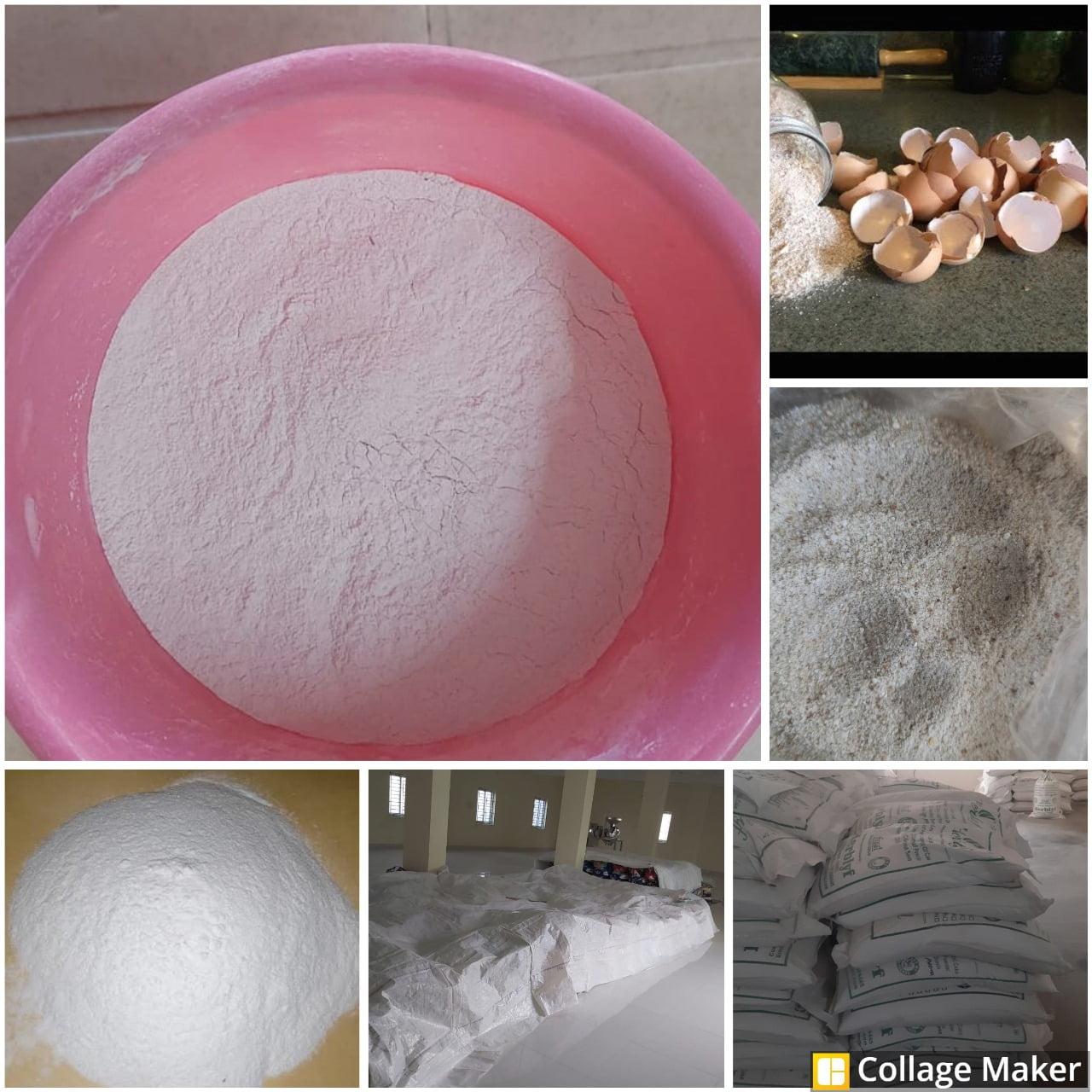
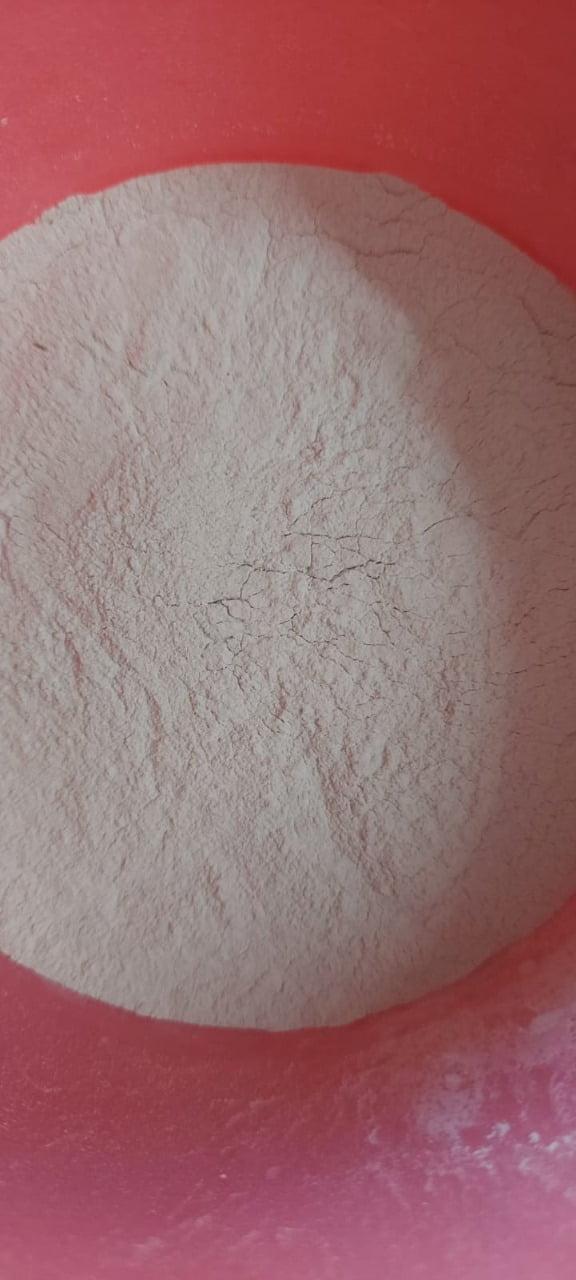


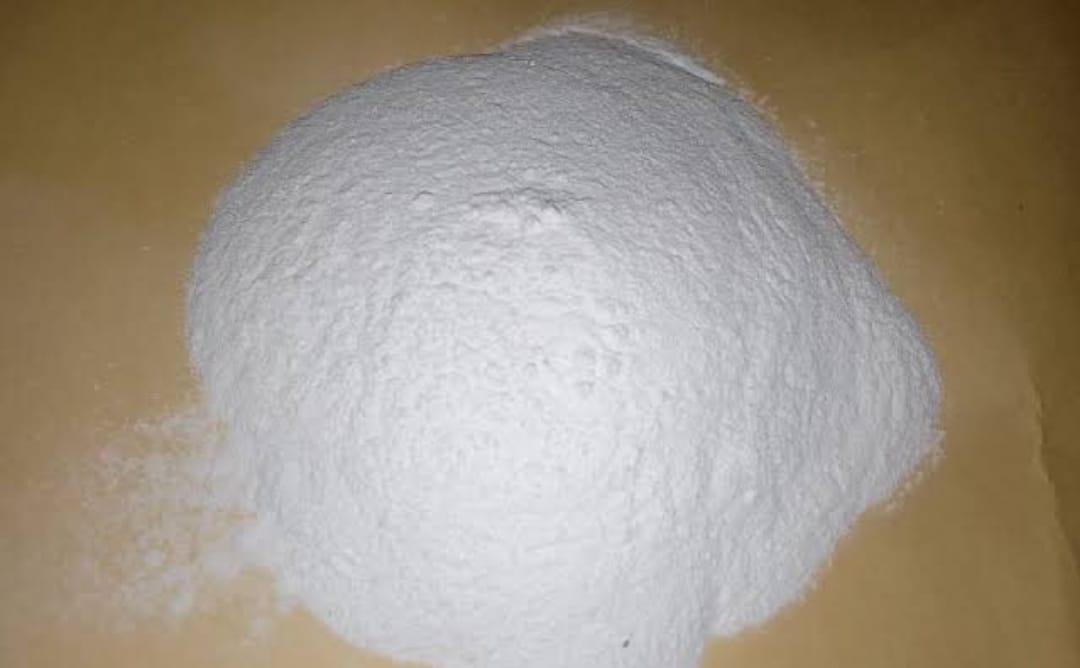
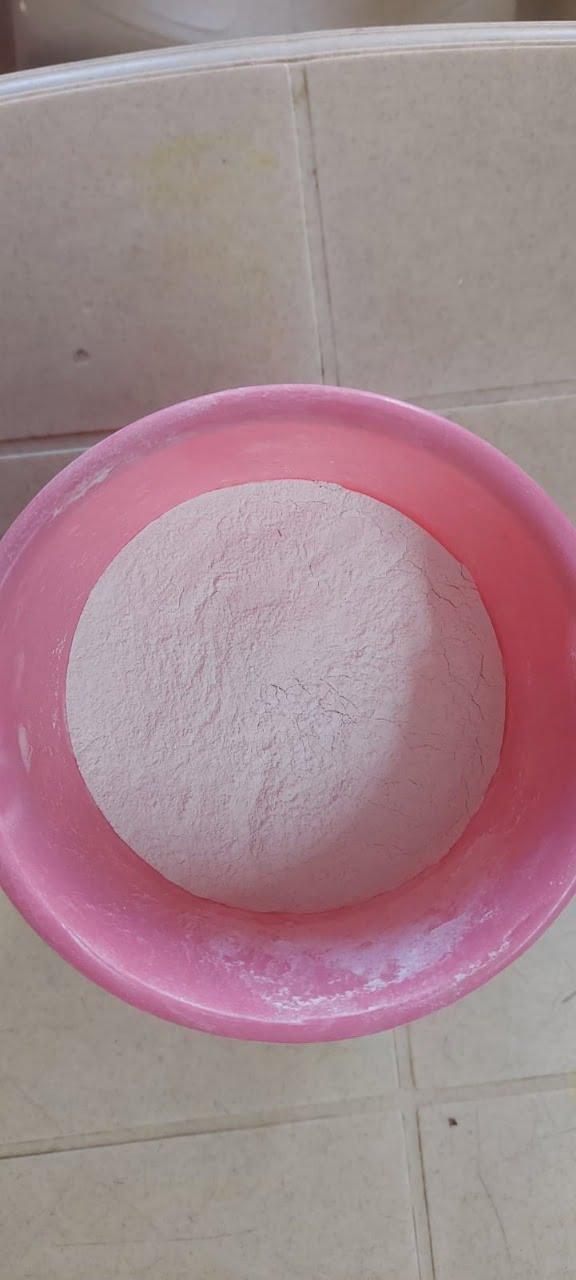
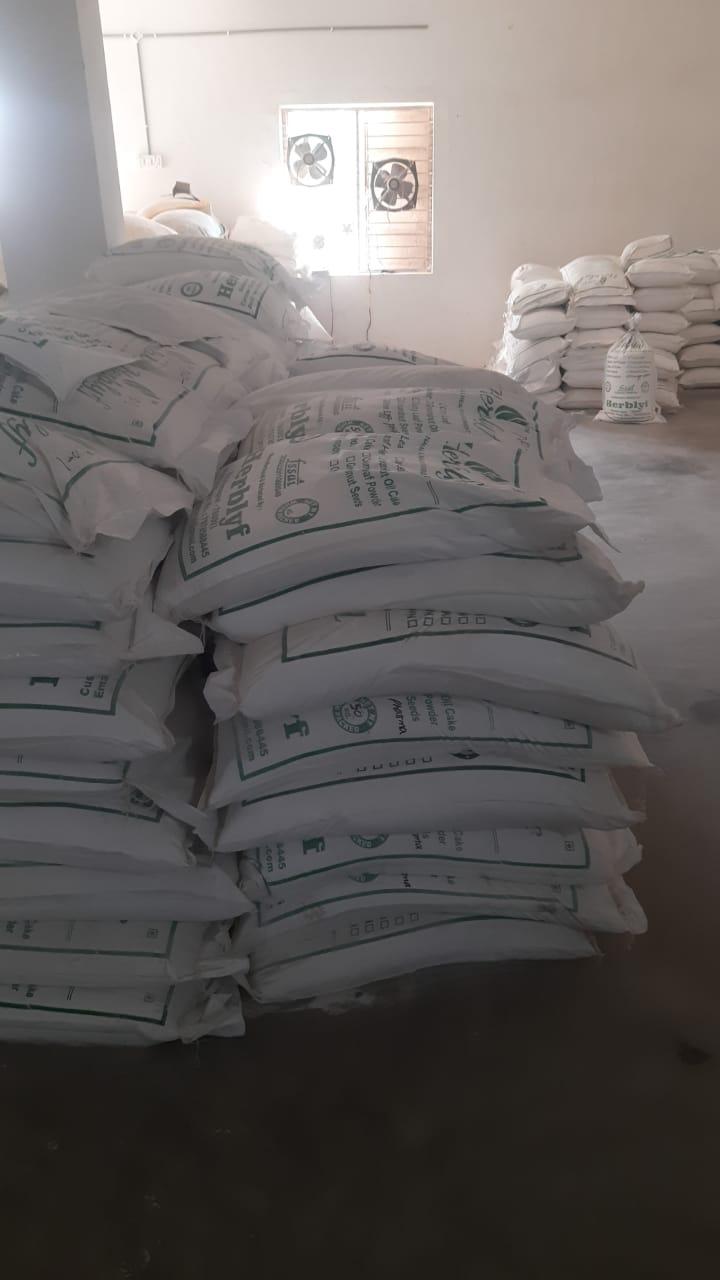
















Reviews
There are no reviews yet.